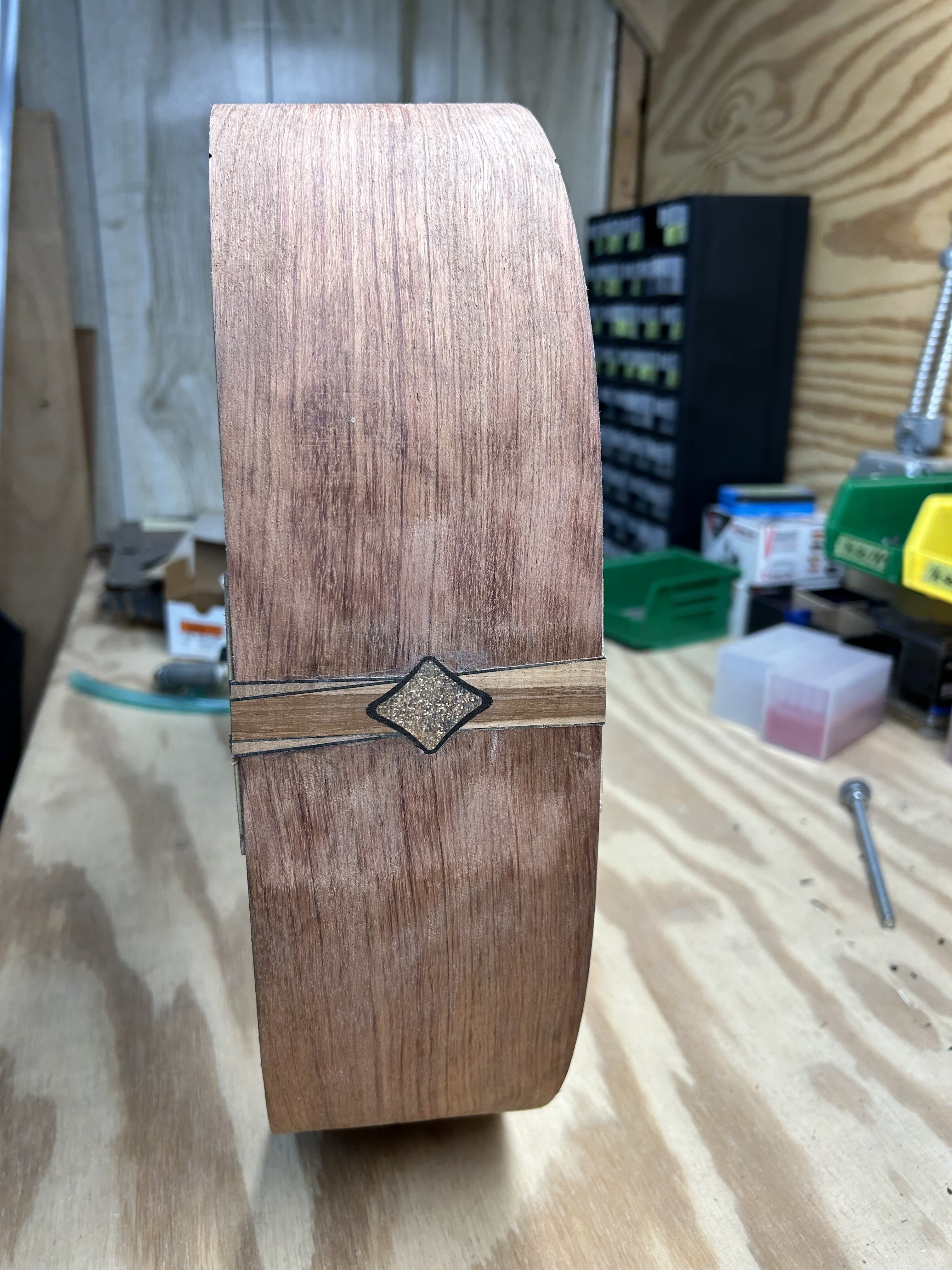Elbow deep in other more important projects, but I managed to fit in some time to push this OM cutaway a little closer to completion.

Adirondack top (maybe a little floppy…) and bubinga body (assuming it behaves going into the mold…).
I’ve been jokingly calling the buttwedge design the Double Black Diamond (DBD for short). Koa with ebony and glitter bullshit. Figuring out how to safely route the pocket was a fun puzzle that was definitely OVER ENGINEERED. Very pleased with the results though.

Taking suggestions for inlay designs for both the head stock and fingerboard. They’ll both likely be ebony or some other dark hardwood depending on what I can scrounge up. I have plenty of shell, stone, etc. for color and/or detail and a machine that can cut them a hell of a lot cleaner than I can.
This particular guitar is a giveaway item for a bunch of beer drinking craftsmen, so really almost anything goes.
More builds to come soon.
Keep luth’n!



Very cool! Thanks for sharing.
How do you achieve those bends? I suspect steaming in a jig so the wood holds its shape once dry?
Steam, pressure, and patience.
I essentially have an inside an outside mold that gets loaded with a wet piece of wood sandwiched between slats of spring steel and heating blankets.
As the blankets start to heat, the wood starts to soften and can be slowly pressed into position starting at the waist and moving out along the bouts. This takes a bit of technique as you need to move quick before the wood dries out and stops being pliable, but you also need be patient otherwise the wood could break from the forces.
It’s a balancing act that is actually a lot easier than it sounds.